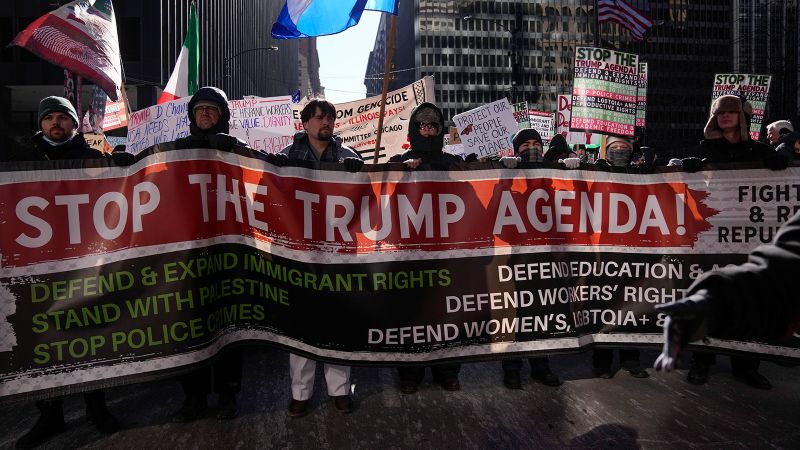On a recent Friday, a significant ruling came from a federal judge in Illinois who dismissed a lawsuit brought by the Trump administration against local authorities in Chicago regarding their immigration policies. The lawsuit aimed to challenge the restrictions that the city had imposed on cooperation between federal immigration agents and local police, particularly highlighting what are often referred to as “sanctuary laws.” These laws are designed to protect undocumented immigrants by limiting local agencies’ assistance to federal immigration enforcement.
The contentious lawsuit was filed back in February and claimed that Chicago’s sanctuary policies “thwart” the federal government’s ability to enforce immigration law effectively. This action was part of a broader strategy by the Trump administration to aggressively pursue local jurisdictions that had adopted policies perceived as obstructive to federal immigration objectives. The Trump administration’s complaint was directed at officials in Illinois, the city of Chicago, and Cook County, arguing that these local laws conflicted with federal directives by impeding the sharing of immigration-related information between local law enforcement and federal agents. They contended that such restrictions hindered the identification of individuals residing in the country unlawfully and who might be subject to deportation processes.
On this matter, Judge Lindsay Jenkins presiding over the Northern District of Illinois decided in favor of the defendants by granting a dismissal to the lawsuit. In her ruling, Judge Jenkins noted that the lawsuit lacked proper standing when it came to the individual defendants associated with the local sanctuary policies. By dismissing the case, Jenkins reiterated the autonomy of local governments in deciding their approaches to immigration enforcement, which aligns with the rights they have under the Constitution.
Responses to the ruling from local leaders reflect a sense of relief and reaffirmation of their policies. Chicago Mayor Brandon Johnson expressed satisfaction with the court’s decision, stating that it advocates for a safer environment where local law enforcement can prioritize the needs of residents without being entangled in the federal government’s immigration agenda. He remarked that the ruling underlines the legality of Chicago’s Welcoming City Ordinance, which fosters public safety by allowing the city to manage its local policies without external compulsion.
Governor JB Pritzker congratulated the city for what he characterized as a significant victory against the Trump administration, highlighting the state’s commitment to the principles inherent in local sanctuary policies. The ruling has been positioned alongside various lawsuits the Trump administration has pursued against other cities and states across the United States, including places like Los Angeles, New York City, Denver, and Rochester, New York, as well as individual cities in New Jersey.
Historically, Chicago has acted as a sanctuary city for many years, enhancing its protective measures for undocumented immigrants during pivotal moments, including during Trump’s initial term in office when such policies came under significant scrutiny and challenge. In fact, the governor at the time, Bruce Rauner, a Republican, also signed statewide sanctuary protections in 2017, showcasing a broader state-level commitment to these policies.
Interestingly, the term “sanctuary city” lacks a formal definition and typically refers to local jurisdictions that limit their cooperation with Immigration and Customs Enforcement (ICE), which is tasked with enforcing U.S. immigration laws throughout the country. While ICE sometimes seeks assistance from local and state agencies, tensions often arise over the extent of cooperation, revealing ongoing nationwide debates regarding immigration policy and law enforcement cooperation.
In conclusion, this court ruling not only underscores the complex interplay between federal and local immigration laws but also emphasizes the significance of local jurisdictions standing firm against federal policies they deem unjust or harmful. The judicial decision represents a marked assertion of local autonomy, paving the way for cities like Chicago to continue their commitment to serve and protect all residents, regardless of their immigration status. As the legal battles over immigration enforcement continue to unfold across the country, localities will remain at the center of this contentious dialogue.











